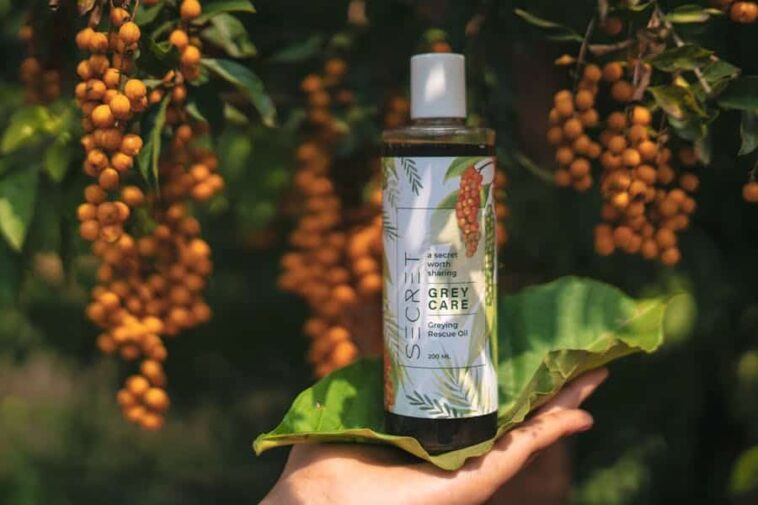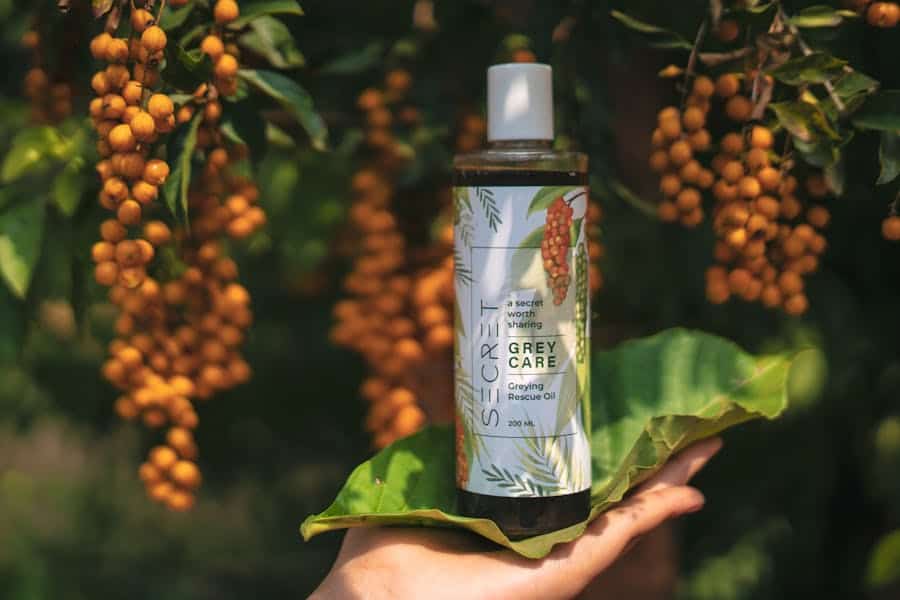Tanning oils are a popular choice for those seeking to enhance their sun-kissed glow, promising to accelerate the tanning process for a faster, more pronounced tan. These products claim to increase the skin’s ability to absorb ultraviolet (UV) rays, thereby deepening the tan. However, amidst their popularity, questions about their efficacy and safety persist. Do tanning oils really work as advertised, and what are the potential risks involved in using them? This article aims to explore the reality behind tanning oils, delving into their ingredients, how they function, and their implications on skin health, to provide a clear perspective on whether tanning oils are a beneficial sunbathing aid or a cause for concern.
Does Tanning Oil Work?
Yes, tanning oil can work by increasing the skin’s ability to absorb UV rays, which can accelerate the tanning process. However, its effectiveness varies depending on skin type, the ingredients in the oil, and sun exposure conditions. While tanning oils can help achieve a deeper tan more quickly, they also pose risks, such as increased chances of sunburn and skin damage.

Types Of Tanning Oils
Tanning oils come in various formulations, catering to different preferences and skin types. Broadly, they can be classified into natural and chemical-based oils, with or without sunscreen, and those specifically designed for different skin types. Understanding the types of tanning oils can help individuals choose the most suitable product for their needs.
Natural vs. Chemical-Based Tanning Oils: Natural tanning oils are made from organic ingredients like coconut oil, avocado oil, and cocoa butter. These oils often contain antioxidants, vitamins, and hydrating properties that nourish the skin while promoting a tan. On the other hand, chemical-based tanning oils may include synthetic ingredients designed to enhance tanning speed. While natural oils are preferred for their gentler effects on the skin, chemical-based options might offer quicker results but with potential risks to skin health.
Tanning Oils With Sunscreen vs. Those Without: Some tanning oils incorporate sunscreen, offering protection against harmful UV rays while still promoting a tan. These products are formulated to provide a balance between tanning and sun protection, making them a safer choice for sun exposure. Tanning oils without sunscreen, however, focus solely on enhancing the tanning process, lacking protection against UV damage. Users of these oils need to be cautious and consider applying a separate sunscreen to minimize sun-related risks.
Specialized Tanning Oils for Different Skin Types: Recognizing that skin types vary, many brands offer tanning oils tailored to specific needs. For example, oils designed for sensitive skin might include hypoallergenic ingredients and be free from irritants. Oils for dry skin often have extra moisturizing properties. Meanwhile, options for darker skin tones might focus on enhancing the natural glow rather than accelerating the tanning process. Choosing a tanning oil based on skin type ensures a better, safer tanning experience.
How Tanning Oils Work?
- Enhancing UV Ray Absorption: The primary function of tanning oils is to improve the efficiency with which the skin absorbs sunlight. Many tanning oils contain ingredients that reflect UV rays onto the skin, rather than allowing them to scatter. This concentration of UV rays can intensify the tanning effect. The oils create a shiny layer on the skin, which not only helps in attracting more sunlight but also focuses the rays for more effective tanning.
- Moisturizing The Skin: Tanning oils often have moisturizing properties, thanks to ingredients like natural oils and aloe vera. Moisturized skin tans more evenly and effectively than dry skin. Hydration helps in maintaining the skin’s elasticity and health, which can contribute to a smoother and more uniform tan. By preventing peeling and flaking, moisturizing components ensure that the tan lasts longer.
- Melanin Production: Some tanning oils contain ingredients that may promote melanin production in the skin. Melanin is the pigment responsible for giving skin its color, and an increase in melanin production can lead to a darker tan. These ingredients work by stimulating the skin’s natural response to sunlight, encouraging it to produce more melanin as a form of protection against UV rays.
- Risks And Considerations: While tanning oils can be effective in achieving a desired tan, they also raise concerns regarding skin health. By increasing UV absorption, these oils can enhance the risk of sunburn and long-term skin damage, including premature aging and an increased risk of skin cancer. It’s crucial for users to be aware of these risks and to use tanning oils responsibly, ideally with products that contain sunscreen or by applying sunscreen separately to protect the skin from harmful UV rays.
Pros And Cons Of Using Tanning Oils
Using tanning oils can offer both benefits and drawbacks, depending on various factors such as skin type, ingredients in the tanning oil, and how it is used. Below are some of the key pros and cons of using tanning oils to help individuals make informed decisions about their tanning routines.
Pros
- Accelerated Tanning Process: Tanning oils are designed to increase the skin’s absorption of UV rays, which can speed up the tanning process. This means achieving a deeper tan in a shorter amount of time compared to tanning without oils.
- Moisturizing Benefits: Many tanning oils contain hydrating ingredients like natural oils and aloe vera that moisturize the skin. This hydration can prevent dryness and peeling, ensuring a smoother and more even tan.
- Enhanced Glow: Tanning oils often leave the skin looking shiny and radiant, enhancing the aesthetic appeal of the tan. The oils can help highlight the tan, giving the skin a healthy, glowing appearance.
- Versatility And Variety: There is a wide range of tanning oils available, including options with natural ingredients, those with SPF, and products tailored for different skin types. This variety allows users to choose a product that best suits their needs and preferences.
Cons
- Increased Risk Of Sunburn And Skin Damage: By intensifying UV ray absorption, tanning oils can elevate the risk of sunburn, which is a short-term damage, and accelerate skin aging and the risk of skin cancer, which are long-term consequences.
- Lack Of Sufficient Sun Protection: Many tanning oils do not contain adequate SPF, if any at all. This lack of protection means users are more exposed to harmful UV rays, necessitating the application of a separate sunscreen for adequate protection.
- Uneven Tanning: If not applied evenly, tanning oils can lead to an uneven or streaky tan. The oil can accumulate in certain areas, causing some parts of the skin to tan more than others.
- Potential For Acne And Allergic Reactions: Depending on the ingredients and the individual’s skin type, tanning oils can clog pores and trigger breakouts, especially in those with oily or acne-prone skin. Additionally, some people may experience allergic reactions to specific components in the oil.
Alternatives To Tanning Oils
For those seeking a sun-kissed glow without the potential risks associated with tanning oils, there are several safer and effective alternatives. These options cater to a variety of preferences, from wanting no sun exposure at all to seeking minimal exposure with added protection. Here are some notable alternatives to tanning oils:
1. Sunless Tanning Products
- Self-Tanners: Self-tanning lotions, creams, and sprays contain dihydroxyacetone (DHA), a chemical that reacts with the skin’s surface layer to create a tan appearance without UV exposure. These products offer a range of shades and strengths to achieve desired tanning results without the sun.
- Tanning Towels: Pre-soaked with self-tanning solution, tanning towels offer a convenient, no-mess application. They’re great for achieving an even tan and are particularly handy for travel.
2. Spray Tans
Professional spray tanning services provide an instant tan with customizable shades. Performed in salons, spray tans use a fine mist containing DHA to evenly coat the skin, offering a uniform and streak-free tan. This option is ideal for special occasions or for those wanting immediate results without sun exposure.
3. Tanning Lotions With SPF
Unlike traditional tanning oils, some tanning lotions come fortified with SPF protection. These lotions help moisturize the skin while providing a mild tanning effect and protecting against harmful UV rays. They’re suitable for those who prefer minimal sun exposure but still want some level of tanning and sun protection.
4. Natural Oils With Low SPF
For individuals preferring natural products, oils like coconut, olive, and carrot seed oil offer minimal sun protection factors (SPF). While they should not be relied upon for full sun protection, these oils can provide slight UV barrier effects and moisturize the skin. It’s essential to use them in conjunction with a high-SPF sunscreen for adequate protection.
Summary
Tanning oils can expedite the tanning process by enhancing UV ray absorption, but they come with risks like increased sunburn and skin damage. Alternatives such as sunless tanning products, spray tans, and tanning lotions with SPF offer safer ways to achieve a tan without harmful UV exposure. These options range from professional services to daily moisturizers, catering to various preferences and needs. Prioritizing skin health, these alternatives provide a sun-kissed glow while minimizing the potential for skin damage and promoting safer tanning practices.
FAQ’s
Can Tanning Oil Cause Skin Damage?
Yes, tanning oil can increase the risk of skin damage, including sunburn, premature aging, and skin cancer, due to enhanced UV ray absorption.
Do All Tanning Oils Contain Spf?
No, not all tanning oils contain SPF. Some are designed solely to enhance tanning, without offering sun protection. It’s important to check the product label for SPF content.
Can I Use Natural Oils As Tanning Oils?
While natural oils like coconut and olive oil can be used for tanning, they offer minimal sun protection. It’s advisable to use them with a high-SPF sunscreen for adequate protection.
How Do I Choose The Right Tanning Oil For My Skin Type?
Look for tanning oils formulated for your specific skin type (e.g., sensitive, dry) and consider products with moisturizing ingredients and, if desired, SPF for protection.
Are Sunless Tanning Products A Safer Alternative To Tanning Oils?
Yes, sunless tanning products, such as self-tanners and spray tans, provide a safer alternative as they offer a tan appearance without the need for UV exposure, thereby reducing the risk of skin damage.





